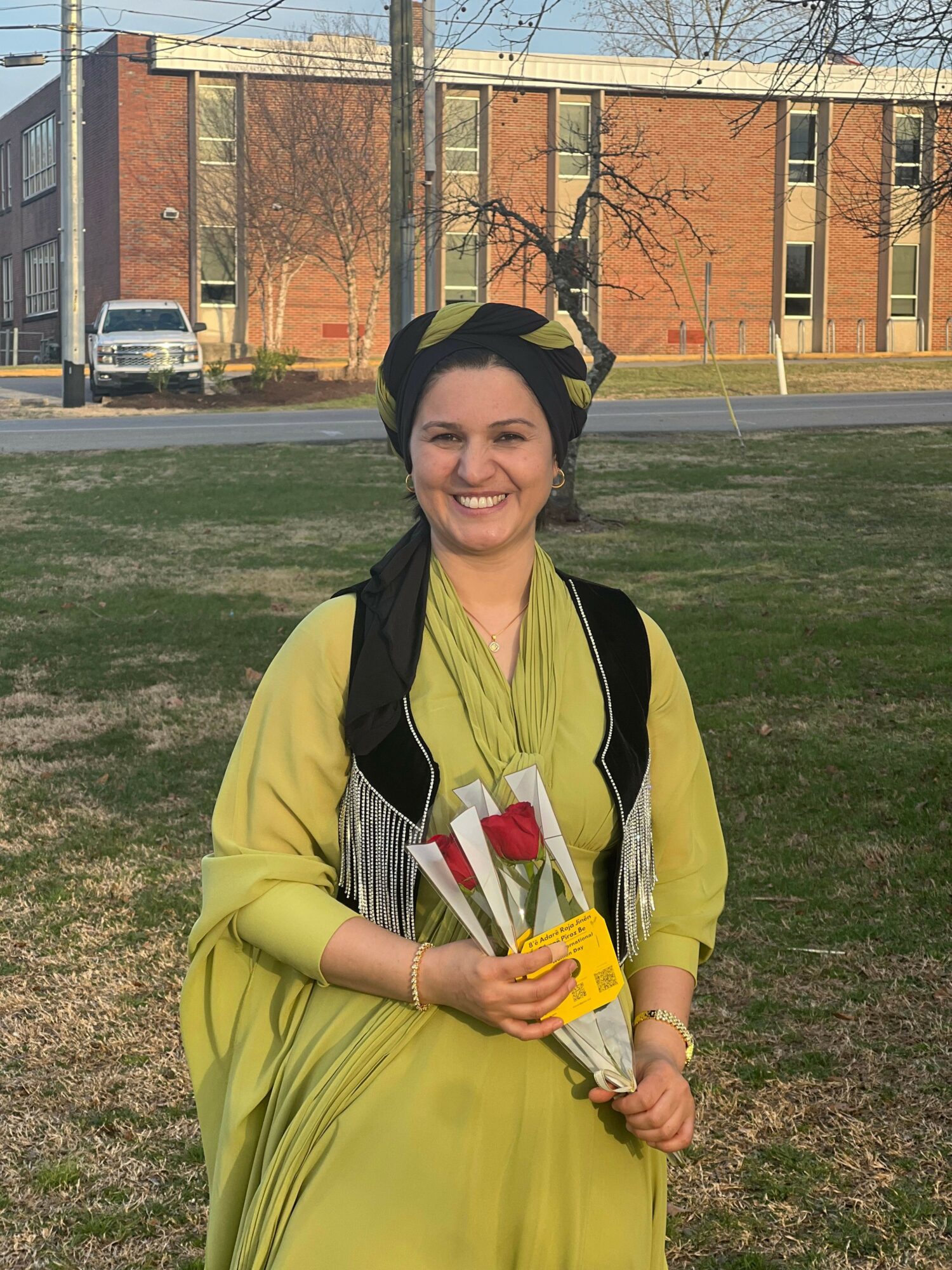

Nesrin Simsek shared their story and experiences with us recently and you can find our conversation below.
Hi Nesrin, thank you for taking the time to reflect back on your journey with us. I think our readers are in for a real treat. There is so much we can all learn from each other and so thank you again for opening up with us. Let’s get into it: What is a normal day like for you right now?
I work four days a week. I start work very early in the morning and return in the evening, so I don’t have much time for myself. However, the remaining three days I wake up early in the morning and read a book. Then I study English and then I research notes about music. I usually check my instruments and try to practice with them. I have three children. I take care of them. I cook. I clean the house. I go shopping. I have guests. I sometimes meet with my friends outside.
Can you briefly introduce yourself and share what makes you or your brand unique?
My name is Nesrin. I am 35 years old and a Kurdish musician.
I started music at a young age and have continued ever since with passion and dedication. For me, music is not just an activity — it’s an inseparable part of my life. I have been playing the Daf, a traditional Kurdish percussion instrument, for over 20 years, and I also teach it to others.
Two years ago, together with my friends, we opened a Kurdish Culture, Music, and Arts Center in the area where we live. At this center, we offer classes in traditional instruments, language, and folk dance. We focus especially on women and children, with the goal of preserving and passing on our cultural heritage.
Alongside my team, we are constantly working to improve and grow this institution. Our main goal is to preserve and promote Kurdish culture and arts, and to share them with people from other backgrounds and communities.
Appreciate your sharing that. Let’s talk about your life, growing up and some of topics and learnings around that. Who were you before the world told you who you had to be?
I was a Kurdish girl with rhythm in her heart and fire in her spirit—before borders, systems, and silence tried to name me.
I was the sound of a Daf before I even held it.
I was a voice longing to speak my mother tongue, even when the world tried to erase it.
I was a dreamer, a questioner, a dancer in shadows and sun.
Before the world gave me labels, I was free.
Before it told me to shrink, I expanded.
Before it told me I couldn’t, I already was.
When did you stop hiding your pain and start using it as power?
I stopped hiding my pain the day I picked up the Daf and let it speak for me.
Growing up as a Kurdish girl in a region where my language, identity, and even dreams were pushed into silence, I learned to carry my pain quietly.
But music gave me a voice.
The rhythms I played were not just sounds—they were screams, stories, and strength.
I realized I wasn’t alone. There were millions of women like me, fighting to be seen and heard.
Instead of hiding, I began to teach. I created space for other women and children to express themselves.
That’s when my pain became power—when I turned it into rhythm, into resistance, into hope.
I think our readers would appreciate hearing more about your values and what you think matters in life and career, etc. So our next question is along those lines. What important truth do very few people agree with you on?
I believe that art—especially music created by women from oppressed cultures—is not just expression; it’s survival. Many see music as a hobby or entertainment, but for me, it is a lifeline, a form of resistance, and a way to preserve a culture that others tried to erase. When a Kurdish woman plays the Daf, she is not only making rhythm; she is reclaiming her voice in a world that told her to be silent.”
Before we go, we’d love to hear your thoughts on some longer-run, legacy type questions. What will you regret not doing?
I will regret not passing on the music, stories, and strength of my people to the next generation. If I don’t teach Kurdish girls to play the Daf, to sing in their mother tongue, to believe in their own voice, I will feel like I failed not only them—but the generations before me who risked everything to keep our culture alive.
Keeping silent is easy. But I will regret not being loud enough while I had the chance.
Contact Info:
- Instagram: Nesrin_Defjen
- Youtube: Nesrin Simsek













